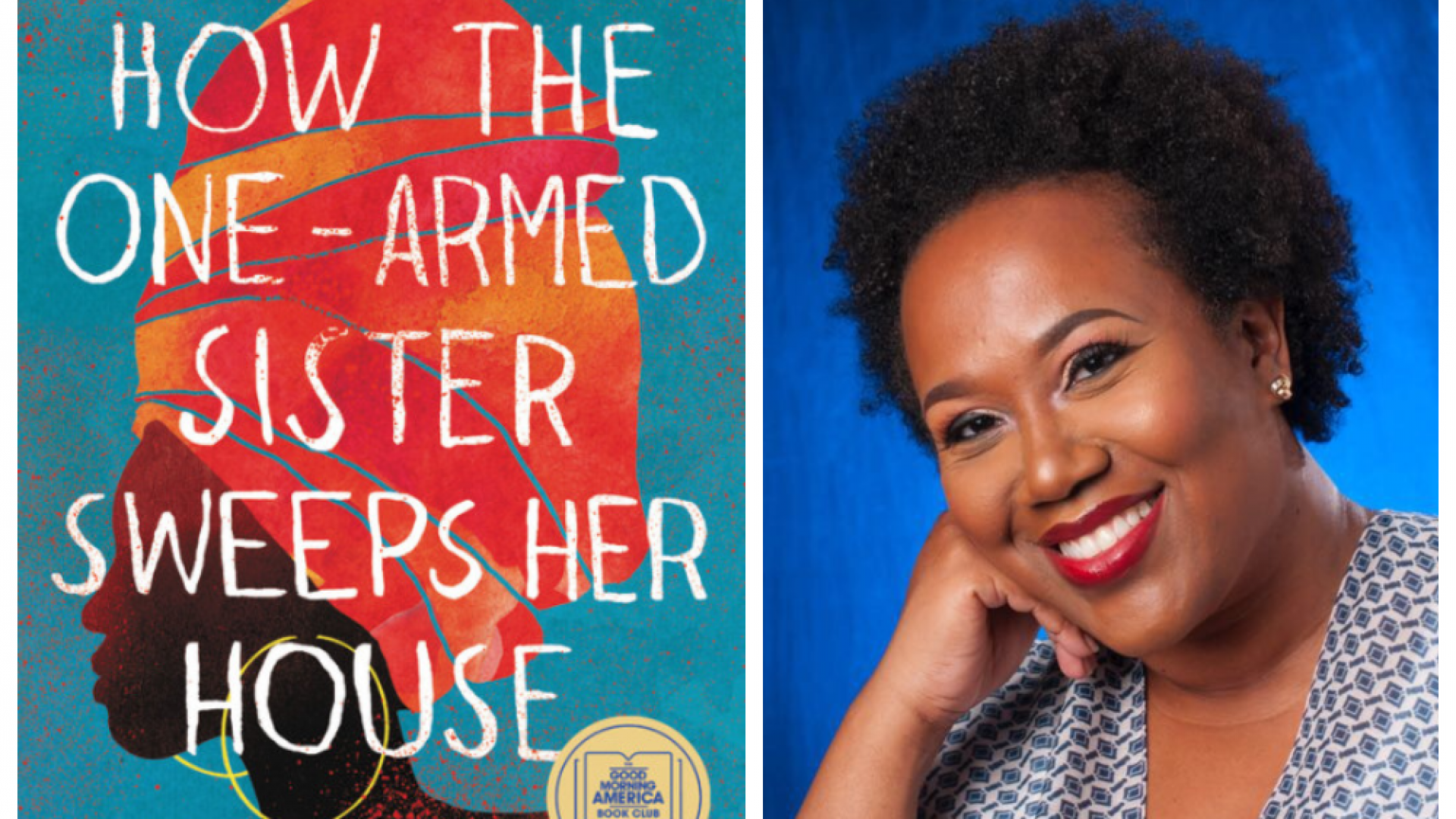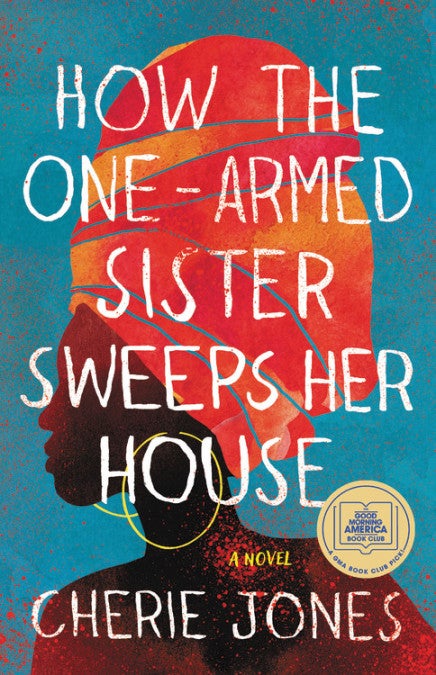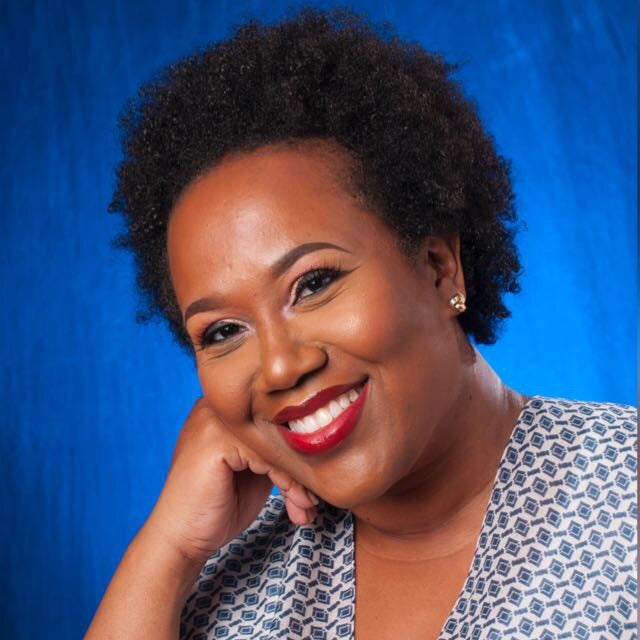
Whether it’s the pink shoreline of Crane Beach, the crystal blue waters of the Caribbean sea, or the superstar Rihanna, the island of Barbados is almost always associated with beauty. But in her debut novel, How the One-Armed Sister Sweeps Her House, author Cherie Jones explores the not-so glamourous side of the tropical island.
This gripping tale which explores the complicated lives of tourist and service industry workers has become an international sensation. With the suspense story, set in Baxter’s Beach, Jones masterfully crafts a world where love and survival collide in its exploration of race and class– and it shouldn’t be long before Hollywood is banging on her door for the movie rights. In the meantime, the first-time author has already snagged the highly coveted Good Morning America Book Club Pick for this month.

Never imagining she could make a serious career out of writing, the Bajan mother of four chose to study law instead. Now a practicing lawyer, Jones figured out a formula to keep her day job as an in-house attorney at a regulatory agency and still write the stories she longs to tell.
ESSENCE caught up with Jones to talk about how to find your voice as a writer, her love of Rihanna, and why everyone should come to Barbados to work remotely.
Congratulations on being Good Morning America’s February Book Club pick. How does it feel to receive that type of reception out of the gate?
CHERIE JONES: Well, it feels wonderful. It’s exhilarating. I’ve literally been pinching myself one moment and in tears the next. We actually got a few reviews in the U.S. on the same day as publication and the GMA announcement. By the third review, I just burst into tears. I have this Jamaican lady that braids my hair and she was kind of crying for me and I was just crying, too. It’s taken a long time to get here.
You mentioned getting your hair braided. The main character of your book, Lala, is actually a hair braider. Can you talk a little bit about the importance of this profession in Caribbean culture?
JONES: Women braiding hair for tourists on the beach was a feature of my childhood. To me, hair braiding is so much more than just a hairstyle. It’s self-expression. It’s politics. It’s pride. The resurgence of natural hairstyles and the fact that they are much more widely accepted as being perfectly normal now means a lot to me. There’s something very communal and comforting about having your hair braided. It’s very magical. It’s a really intrinsic part of our culture and who we are.
While we’re discussing self-expression, I have to ask you this. Rihanna’s Savage X Fenty brand just officially became valued as a billion-dollar business. What does this mean to you as a Bajan citizen?
JONES: I’m just so proud. Every time she comes up with something else, I ‘m just like go girl. Show everybody what Bajan girls are made of. I’m actually wearing Fenty Beauty Hot Chocolate lip gloss right now.
You write about strong Bajan women in your book. How did you come up with the title, How the One-Armed Sister Sweeps her House?
JONES: The title came to me the same way the story came to me. It’s just something that popped in my head. It’s almost if these things are given to me. It may be weird for other people to hear. I hear the title in my head the same way I hear the characters in my head.
The title is not only the connection to the myth that appears in the beginning of the book. It’s one of the larger questions in the book. In the Caribbean we tend to place a lot of value on our women based on how they perform a particular role in the domestic sphere. So, the ability to keep a clean house is something that women are measured by—or at least they were when I was growing up.

There’s a saying that there’s usually a lot of truth in fiction. Did you draw from your personal experiences to write this novel?
JONES: Yes I did. I haven’t made a secret of it. I am also a survivor of domestic violence. So, to that extent, I have experienced certain things myself and observed some of these things from my family and friends and their families. I think that aspect of who I am helped me to write more authentically. Having said that, [Lala’s] actual experiences aren’t mine. I’ve never experienced the particular things she experienced.
At the beginning of the pandemic, your government offered the Barbados Welcome Stamp, which would allow international visitors the opportunity to come work there remotely for a year. What would you tell people about living on the island?
JONES: Anyone coming here from a busier place has to be prepared to slow down a little bit. I’ve worked in the U.K. and I think there is a little bit of shifting of gears required. One of the big bonuses about Barbados is the people are generally warm and friendly. We have a lot of things that make remote working possible. We have a very literate workforce that can provide support if it’s needed. I would hope someone that comes here for 12-months would really experience the life of a Bajan.
What would you say to young women of color about following your dreams?
JONES: I would say you don’t always get the fairytale. I would want to give them the story of my journey. Publishing a book that would be published internationally was a dream of mine for a very long time. At various points, I had to remind myself why I actually write. Writing is as much a part of who I am as breathing or walking. I told myself, whether I get the book deal or not, I’m still going to be writing. So, I would tell them to believe in this thing that they feel that they are supposed to contribute to the world. I didn’t do that for a very long time. Be resilient. Never stop believing in yourself. Just keep doing it. Even if you have to work two jobs and do it. Just stay focused and do it.